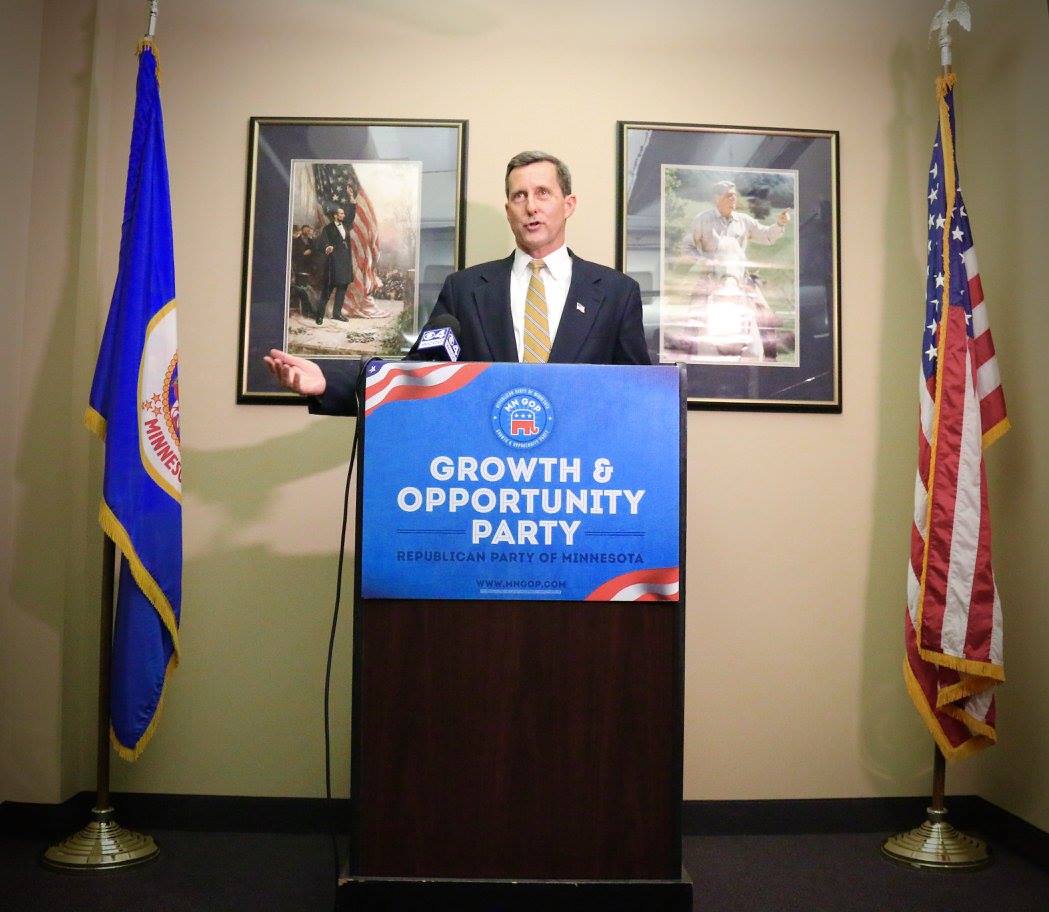Minnesotans joined 11 other states in the Super Tuesday caucuses and primaries, giving Sen. Marco Rubio his only win of the night. As of 2 a.m. Wednesday, Rubio was more than seven points ahead of Sen. Ted Cruz and 15 points ahead of Donald Trump.
Caucus locations in Minnesota experienced massive turnout according to Republican Party of Minnesota Chairman Keith Downey. By 12 a.m., 111,000 residents had cast their votes, smashing the previous 2008 turnout record of 62,000.
The unexpectedly large crowds created a delay in reporting results to the GOP headquarters, but Downey said the party had advised precinct officials how to handle the crowds.
“The advice we gave to all the convenors and the coordinators was to err on the side of participation and enfranchisement and not on deadlines,” Downey said. “(If) they need to keep things open a little bit longer… we’ve instructed them to do that.”
He added that voting locations were managing long lines and overflowing rooms “extremely well.” Downey said one location in Roseville ran out of ballots, forcing voters to cast their vote on scraps of paper.
Small counties in northern Minnesota were the first to report results to the headquarters around 8:30 p.m., but some locations, like Anderson Hall at the University of Minnesota, were unable to quickly process the crowds. Even though caucuses across the state started at 7 p.m., Anderson Hall, overwhelmed by nearly 900 students, didn’t even start until after 8:45 p.m.
The last caucus on campus, in 2012, drew only 50 participants, according to a report by the Minnesota Republic, a student-run news organization at the U of M.
Many in the media made comparisons to 2008, an election year that saw a historically high turnout. Republicans showed up 50,000 stronger than they had in 2008, but 84,000 fewer Democrats participated this year compared to eight years ago, according to National Public Radio.
Downey said the remarkable numbers are indicative of an enthusiastic electorate.
“Obviously there’s a lot of interest on the Republican side, a lot of energy. We’re extremely pleased with that. That’s a good sign for the Republicans,” Downey said.
By 10 p.m., Downey said it was probable Minnesota would give Rubio his first primary win. In reports at the time, the Florida senator had 36.2 percent of the Minnesota vote.
By 12:18 a.m., the GOP headquarters had released results with 96 percent of the precincts reporting. Rubio took 36.5 percent of the vote, Cruz had 29 percent and Trump managed 21.3 percent. Retired neurosurgeon Ben Carson finished the night with 7.3 percent just ahead of Ohio Gov. John Kasich with 5.8 percent.
In Congressional District 5, where St. Thomas is located, Rubio won by his biggest margin in the state — more than 14.5 points above second-place Cruz.
At the U of M’s heavily attended caucus, young people also supported Rubio in droves. He took first in the straw poll with a staggering 619 votes. Trump took second with 91 votes.
Rubio walks away from Minnesota with a total of 82 delegates. Trump has 274, and Cruz has 149.
Minnesota was one of the few states in which Trump did not excel; he won the primaries in seven of 11 states. Cruz won two states, Oklahoma and Texas. Rubio won only Minnesota. As of 2:10 a.m., Alaska precincts had not reported results.
When asked why Minnesota was the outlier within the Super Tuesday primaries, Downey listed several reasons, like the strong ground games of Cruz and Rubio. In the end, though, he kept it simple.
“We’re Minnesota,” he said with a laugh.
Sophie Carson can be reached at sophia.carson@stthomas.edu.



